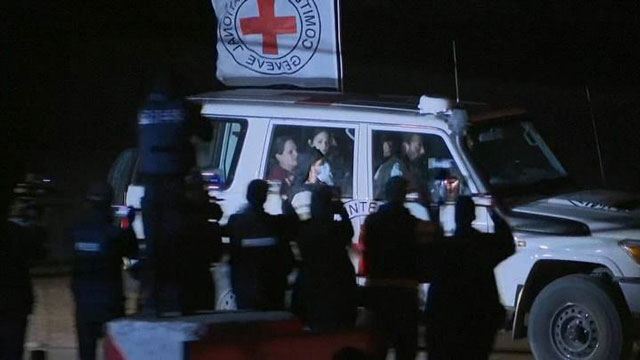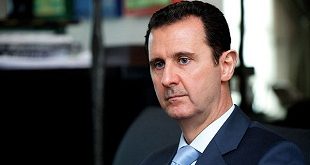
To mark World Humanitarian Day on 19 August, WHO Director-General Dr Tedros Adhanom Ghebreyesus issues a call to stop the intensifying attacks on healthcare workers, hospitals and other health services, which often offer the only hope for saving the lives of people caught up in the horror of needless conflict.
COMMENT | Dr Tedros Adhanom Ghebreyesus – AllAfrica.com | The violent upheaval tearing Khartoum apart has forced many Sudanese people to flee for safety. The war’s impact on the capital’s health system has made it even more urgent for many families to take flight.
Attack’s on medical facilities in Khartoum in 2023 led to a shortage of drugs throughout the capital, which meant many chronically ill Sudanese could no longer find the medicines they needed.
This is the new reality for millions affected by conflicts, and in vital need of healthcare, around the world, including health workers and other humanitarians themselves.
In the past year alone, multiple attacks on Gaza’s hospitals have killed and injured hundreds, including health workers, and displaced people seeking refuge in what were thought to be safe havens. Doctors and nurses have been murdered while striving to care for people displaced from the eastern Democratic Republic of the Congo (DRC) city of Goma. Smoke billowed from Kyiv’s Ohmatdyt Children’s Hospital in Ukraine following armed violence, and workers from the International Committee of the Red Cross were gunned down in Sudan’s restive Darfur region. Polio vaccinators have been fatally targeted in parts of Pakistan.
As the Director-General of the World Health Organization (WHO), I have repeatedly condemned such attacks, and called for the protection and respect of health workers in humanitarian settings and beyond.
Yet, my calls, and those of our humanitarian partners in the field and around the world, have gone unheard, despite health facilities, their staff, patients and other civilians being protected under international laws and conventions during conflicts.
But in 2023 alone, WHO recorded 1520 attacks on health care, resulting in the deaths of at least 750 patients and health workers, and 1250 injuries. So far this year, another 700-plus attacks have been verified. Dire as these numbers are, they likely underestimate the true scale of the problem. WHO colleagues count among the casualties of these attacks on health.
While one attack is too many, some settings have experienced alarmingly high numbers of attacks in short periods. Gaza paints an especially bleak picture. It has been reported that at least 287 aid workers have lost their lives since the conflict began last October, mainly colleagues from UNRWA, the UN agency for Palestinian refugees, and also a member of our own WHO family, Dima Alhaj. As in Ukraine, Sudan, Haiti and beyond, those who fall leave behind grieving families and communities. Parties to conflicts are failing humanitarian and health workers, and the people they serve.
World Humanitarian Day reminds us of the essence of our work: protecting everyone
Even in responding to clear threats to public health, such as the COVID-19 pandemic and 2018-20 DRC Ebola outbreak, humanitarian and health workers faced fatal attacks, physical threats and psychological intimidation on an unprecedented scale.
This years’ World Humanitarian Day (19 August) confronts this normalization of attacks on aid workers, and demands this must not become the norm. On this Day, I reiterate my condemnation of all forms of violence, threats and attacks against humanitarians, including health workers. I also join fellow UN and humanitarian leaders in calling on all countries to take collective responsibility and action to ensure full protection for humanitarians, including health workers. We must provide humanitarian heroes the protected space they need to save lives.
More than ever, World Humanitarian Day reminds us of the essence of our work: protecting everyone, everywhere, regardless of the situation and at all times. Beyond the legal implications, attacks on health interfere with the work of health workers, the distribution of health supplies, and the essential services of health facilities, like vaccinations, prenatal care, and treatment for chronic diseases, leading to preventable deaths and increased suffering.
Even a single attack on the only hospital serving a population can have devastating, long-lasting consequences on healthcare delivery for entire communities in the immediate term, and for years to come. Health facilities provide more than care – in many communities they offer refuge, and contribute to collective welfare and health care, whether as volunteer health surveillance workers, midwives or vaccinators.
The WHO Constitution states, “The health of all peoples is fundamental to the attainment of peace and security and is dependent on the fullest co-operation of individuals and States.”
WHO knows all too well the immense value of our colleagues who work in humanitarian settings, and the pain felt when we lose them needlessly from armed violence. Their dedication is a testament to the impact humanitarian action can have on millions of lives. By safeguarding humanitarians, we uphold the principles of compassion and solidarity, and reaffirm our commitment to a more humane world.
******

Dr Tedros Adhanom Ghebreyesus is teh WHO Director-General
Source: allAfrica.com
 The Independent Uganda: You get the Truth we Pay the Price
The Independent Uganda: You get the Truth we Pay the Price


